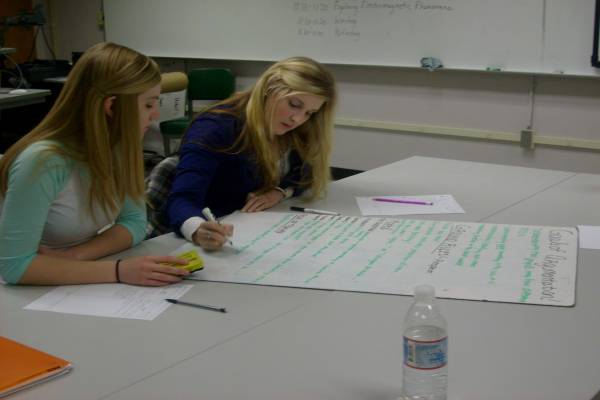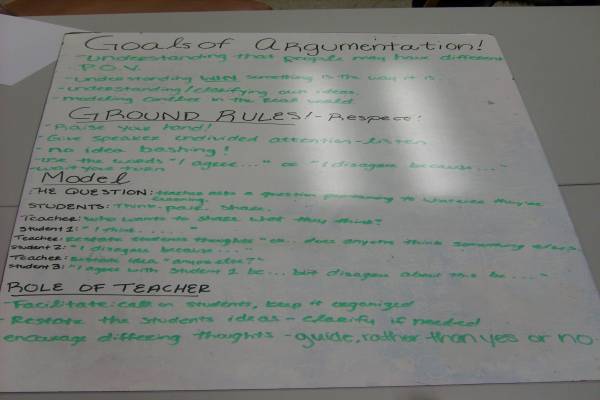You are here: start » strategies » literacy » speaking » presentations » argumentationintheclassroom
Argumentation in the Classroom
Navigation Links
This article is the source of the students' ideas when they write about sentence frames: Ross, D., Fisher, D., and Frey, N. (2009). The art of argumentation. Science and Children, 47(3), 29-31.
Argumentation serves many purposes in the classroom. Students in Physics 111 get the opportunity to practice respectful argumentation and debates on a daily basis as they explore and discuss science phenomena. By speaking about and listening to alternate perspectives, students' conceptualizations of ideas are enhanced.
This page exhibits student presentations on the role of argumentation in the classroom. First they discuss with a partner, next they write down what they are thinking, and then they share, present, and discuss it with the rest of the class.
 |  |
Goals of Argumentation
- Understanding that people may have different points of view
- Understanding WHY something is the way it is
- Understanding/Clarifying own ideas
- Modeling conflict in the real world|
Ground Rules- Respect!
- Raise your hand
* Give speaker undivided attention- listen - No idea-bashing
- Use the words “I agree…” or “I disagree because…”
- Wait your turn
Model
- The Question: Teacher asks a question pertaining to whatever they are learning
- Students: Think-Pair-Share
- Teacher:Who wants to share what they think?
- Student 1: “I think…because…”
- Teacher: Restates students thoughts “Okay…does anyone think something else?”
- Student 2: “I disagree because…”
- Teacher: Restate idea, “Anyone else?”
- Student 3: “I agree with student 1 because…but disagree about this because…”
Role of Teacher
- Facilitate: call on students, keep it organized
- Restate the students ideas- clarify if needed
- Encourage differing thoughts- guide, rather than stating yes or no
